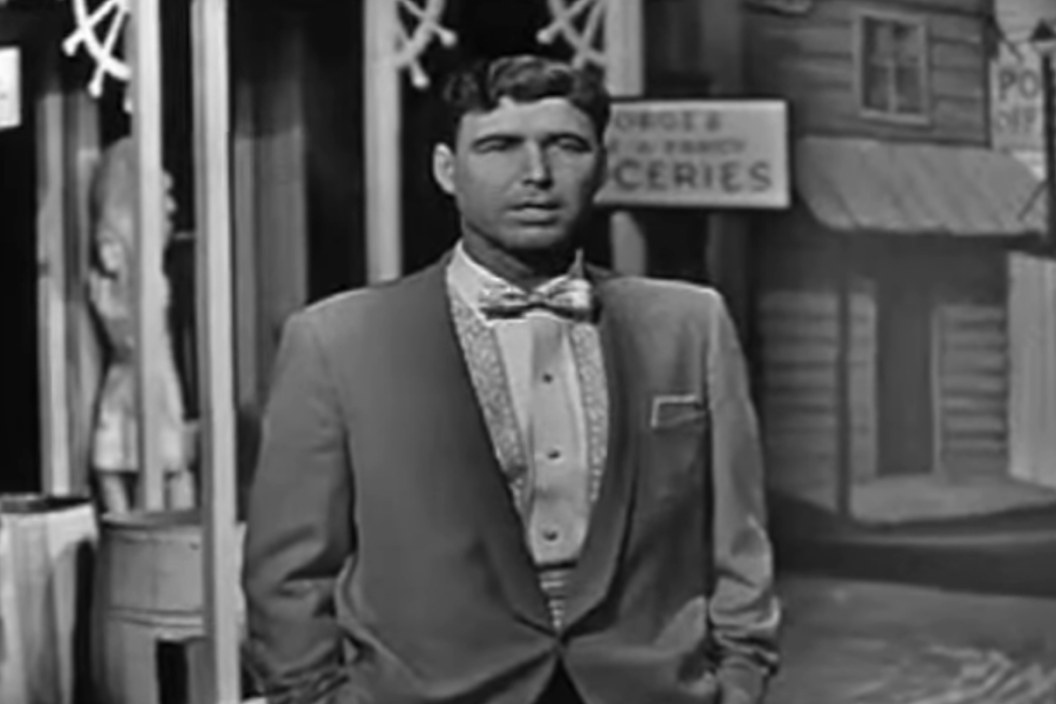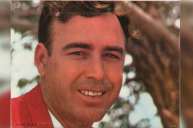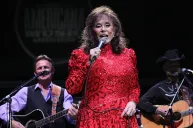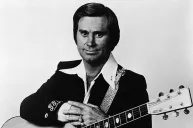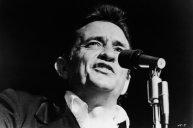Many of the greatest Johnny Horton songs bridged the gap between post-war country music and the countrified sound of '50s rockabilly. Born in Los Angeles and raised in Texas, Horton (April 30, 1925- Nov. 5, 1960) was gifted with a Hollywood-worthy presence and the storytelling chops necessary to perform the best narrative-driven songs this side of Marty Robbins and Johnny Cash.
Like a lot of contemporaries, Horton's country output included cover songs ("Lost Highway") and future standards ("Ole Slew Foot"). And despite his songs' influence on Nashville, it'd be just as easy to compare him musically to Elvis Presley—a Memphis-style rock 'n' roller familiar with the Louisiana Hayride stage and the bright lights of Southern California.
Genre classifications aside, Horton enjoyed an incredible run of success between 1956's "Honky Tonk Man" and the 1960 traffic accident that claimed his life. In that span, he won a Grammy award and sang the theme to a John Wayne movie. Those achievements, paired with the quality of these 10 greatest hits, ain't bad for a hillbilly rocker.
Honorable mentions include The Singing Fisherman's rocking novelty sides "Electrified Donkey," "The Same Old Tale the Crow Told Me" and "I Got a Hole in my Pirogue;" his singing cowboy throwback "Plaid and Calico;" and an overlooked selection in country music's holiday songbook, "They Shined Up Rudolph's Nose."
10. "Whispering Pines"'
Like other great stars of the time, Horton's vocal talents shone brightest on slow songs. This b-side gets the nod as a prime example, although curious listeners should also check out "All For the Love of a Girl" and the more Nashville-friendly "The Mansion You Stole."
9. "Johnny Reb"
Horton's musical fascination with United States military history led to this ballad about a Confederate soldier's death on the battlefield. His other history-based songs include "Johnny Freedom," "Comanche (The Brave Horse)," "John Paul Jones" and "Jim Bridger."
8. "I'm a One-Woman Man"
While the more famous "Honky Tonk Man" is about the sort of running around that deserved a Kitty Wells answer song, this posthumously-released B-side tells of a more honorable man. The Horton and Tillman Franks co-write got a second life in the '80s when it was covered by George Jones.
7. "Cherokee Boogie"
Horton's version of this Moon Mullican hit and Hank Williams deep cut is the missing link between those classics and BR549's revved-up interpretation.
6. "The First Train Headin' South"
Horton's peak as a rockabilly singer and guitarist came not with a chart-topping hit or memorable cover song. Instead, it's this deeper cut off the 1958 album The Spectacular Johnny Horton. Its loose sense of fun can be heard elsewhere in Horton's catalog, including "Sleepy-Eyed John," "I'm Ready If You're Willing," and "I'm Coming Home."
5. "North to Alaska"
Just eight days after Horton's passing, he was immortalized in Hollywood with the release of the John Wayne film North to Alaska. Its opening credits feature this narrative-based song about the Nome gold rush.
Read More: Hank Williams, Johnny Horton and the Eerie History of Austin's Skyline Club
4. "Sink the Bismarck"
Initially misspelled as "Sink the Bismark" by Columbia Records, Horton's supporting cast still deserved to pass World History for backing this single. It's the inspiration for a UK film bearing its correctly-spelled title.
3. "When It's Springtime In Alaska (It's 40 Below)"
Horton's stint as a gold prospector in Alaska may have inspired the setting of this 1959 single. The gripping tale of lust and revenge became his first No. 1 hit.
2. "Honky-Tonk Man"
Horton's greatest contribution to country music came not through a patriotic history lesson but from this song about a cavorting young man. It became ideal cover song material for Bob Luman and Dwight Yoakam. For similar fare, check out Horton's "Honky-Tonk Hardwood Floor."
1. "The Battle of New Orleans"
Horton's version of this Jimmy Driftwood original remains one of the best songs ever recorded about American history. It was just as cool the next decade when The Nitty Gritty Dirt Band made it their own. A less serious Driftwood composition in Horton's arsenal, "Sal's Got a Sugar Lip," offered a similar vibe.
This story previously ran on July 23, 2020.
